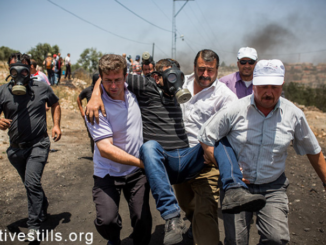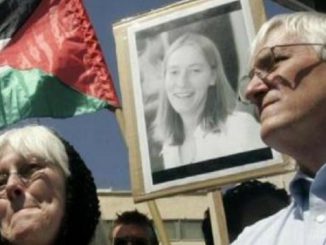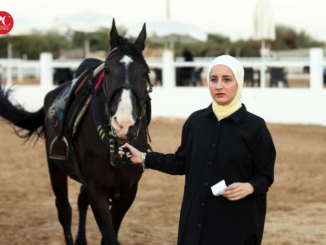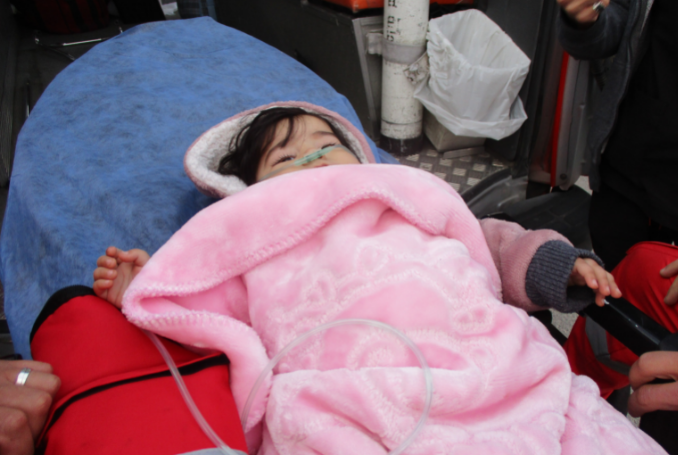
While I was standing at the Qalandiya military checkpoint, six ambulances arrived in a single hour, one after the other.
The first to arrive was the last to leave. It carried the body of a dead Palestinian man, in a black funeral car. Something was wrong with the Israeli permits.
While it is hard, nearly impossible, to get out of the Palestinian ghetto, coming back to it is not easy, either.
For four long hours, the Palestinians, who accompanied the body, begged the Israeli officials to allow them to transfer the dead man to another vehicle, which could pick him up and return him to the Erez Crossing, where his wife and children had been waiting for hours. In vain.
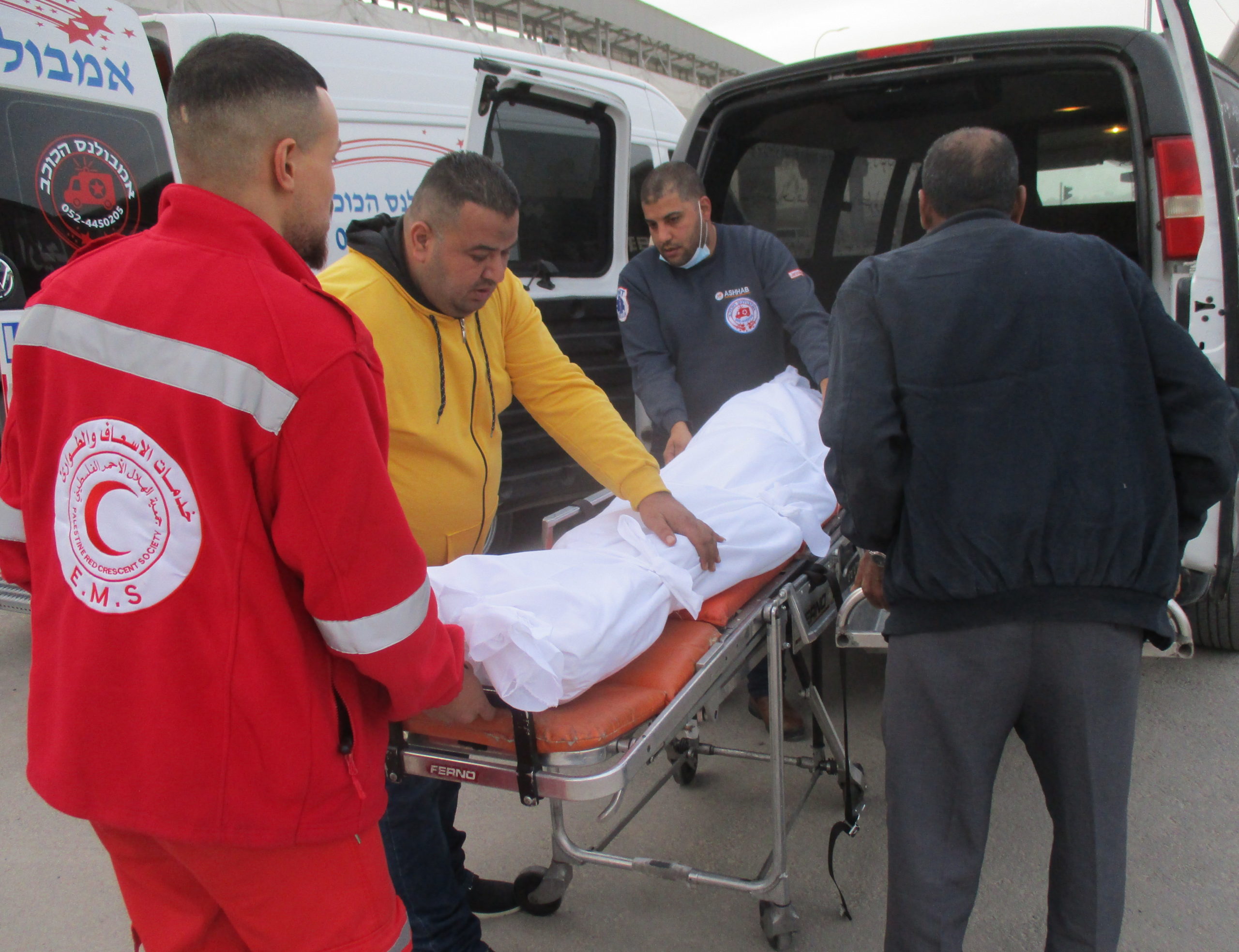
While the dead man was still lying in a vehicle coming from Jericho, an ambulance from the West Bank came and waited to pick up a baby girl.
She was born a month ago with heart failure and she was connected to an oxygen tank. Shortly after her birth, the newborn had been transferred to the Makassed Hospital, in Occupied East Jerusalem, for surgery. During the preparations, she showed signs of pneumonia and was sent back to the hospital in her city of residence, Ramallah.
While the medical teams and others who accompanied the dead Palestinian were still being inspected by Israeli soldiers, another 6-month-old Palestinian baby was brought from the West Bank. She came from Toubas and she, too, was headed to the Makassed to be treated for heart failure.
The procedure was followed to the letter. Bags were inspected to make sure they did not contain explosives. The medical teams and the mother were inspected as well.
I was sad and upset. I sat on a concrete block for a brief rest. A group of Palestinian youths approached. They were all wearing dark sweatshirts, with hoods covering their heads, and they were holding stones in their fists.
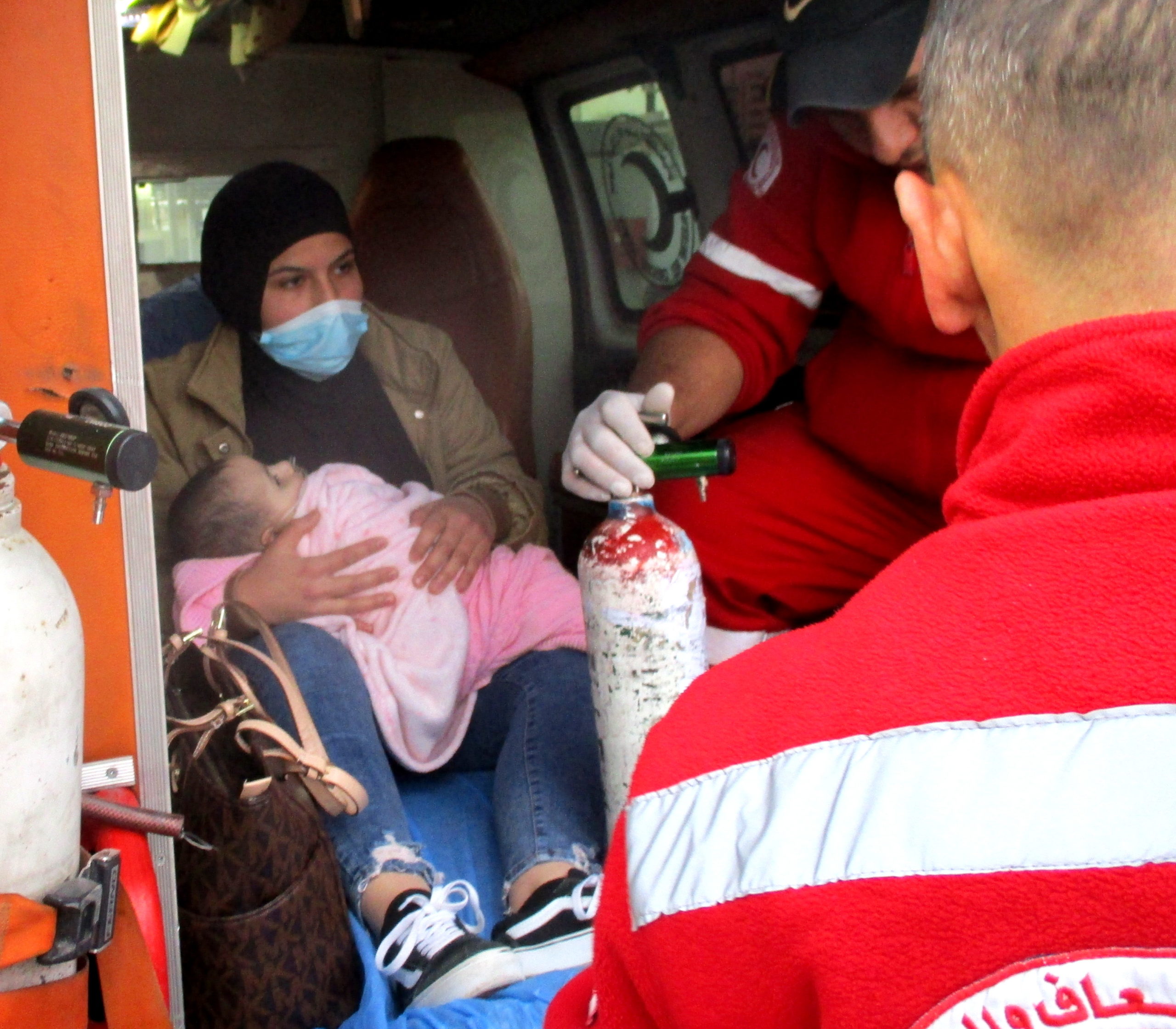
They wanted to find out who I was, where I was from, and the reason why I was there. After minutes, they were showing me pictures and videos of armed Palestinian men.
One of them showed me a video documenting the murder of his brother by the Israeli army. Every few minutes, they stopped talking, just to throw some stones at the corner pillbox post. There was no response, though, the pillbox was deserted.
“Aren’t you afraid to be in Qalandiya?”, one asked.
“No, I am not,” I answered.
I warned them of the numerous military cameras lurking all around them, waiting for them.
When we left, the boy who stood out as their leader waved, and said: “Inti gever,” “You’re a true man!”
(All Photos: Tamar Fleishman, The Palestine Chronicle)
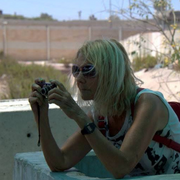
– As a member of Machsomwatch, Tamar Fleishman documents events at Israeli military checkpoints between Jerusalem and Ramallah. Her reports, photos and videos can be found on the organization’s website: www.machsomwatch.org. She is also a member of the ‘Coalition of Women for Peace’ and a volunteer in ‘Breaking the Silence’. Tamar Fleishman is The Palestine Chronicle correspondent at the Qalandiya checkpoint.

